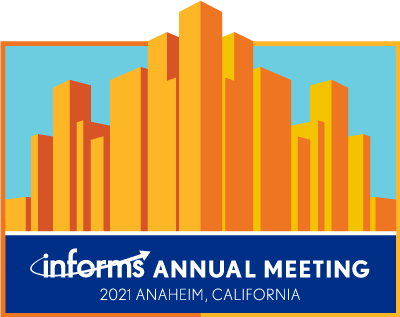Meet our FacilitatORs
FacilitatORs will host small, informal conversations in the virtual Networking Lounges from 12:30-1pm PDT each day of the Annual Meeting on topics of interest and importance to them and their meeting peers. This year’s flexible meeting will be no different with unique features enabling ‘face-to-face’ conversation in groups, one-on-one chats, Q&As, and more between presenters, attendees, INFORMS staff, employers and more.
Scroll down to meet our FacilitatORs!
FacilitatORs will host small, informal conversations in various Networking Zoom chats on topics of interest and importance to them and their meeting peers. Topics include growing areas of interest in the field, as well as issues the community is currently facing in the COVID-19 environment, including:
- How to Build Your Network
- COVID-19 & Healthcare
- DEI: Inclusion in Action
- O.R. for Social Good
- And more!
FacilitatORs Schedule
Sunday, October 24
| Name of Networking Lounge | Available FacilitatOR(s) |
|---|---|
| How to Build Your Network | Thiago Serra |
| Work that Solves Problems: Sustainability | Narges Aminimoghaddam |
| Apoorva Nisal | |
| Nima Molavia | |
| Vyom Thakker | |
| Machine Learning | Gokhan Kirlik |
| COVID-19 & Air Transportation | Stacey Mumbower |
| COVID-19 & Healthcare | Fuad Aleskerov |
| Banafsheh Behzad | |
| Weihan Jia | |
| Mina Ostovari |
Monday, October 25
| Name of Networking Lounge | Available FacilitatOR(s) |
|---|---|
| New Member Meet & Greet | Tracy Cahall |
| Teaching & Education | Sommer Gentry |
| Military & Security | Harrison Schramm |
| Michael Martinez | |
| Issues in Social Media | Tong Wu |
| Revenue & Pricing | Zishuo Zhao |
| Zijie (Jerry) Zhou |
Tuesday, October 26
| Name of Networking Lounge | Available FacilitatOR(s) |
|---|---|
| The Mentorship Advantage | Dionne Aleman |
| Jill Capello | |
| DEI: Inclusion in Action | Tinglong Dai |
| Lama Moussawi | |
| Supply Chain | Md Abu Helal |
| Yeganeh Alimohammadi | |
| James Paine | |
| Concerns in Healthcare | Franklin Dexter |
| Elizabeth Scaria | |
| Adib Zaman | |
| Data & Privacy | Hongyi (Bridget) Huang |
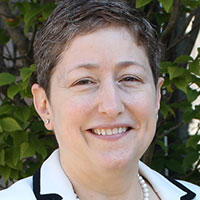
Elena Gerstmann, Ph.D., FASAE, CAE
Elena Gerstmann, Ph.D., FASAE, CAE, was named Executive Director effective July 27, 2020.
Before joining INFORMS, Gerstmann served as a consultant, facilitator, researcher, and leader on key client projects for Avenue M Group. She previously served on the senior executive team at the American Society of Mechanical Engineers (ASME) where she was responsible for strategy and planning, volunteer leadership development, corporate communications, international relationships, board relationships, and executive operations. Before being recruited to ASME, Gerstmann was an executive with IEEE, the world’s largest professional association for the advancement of technology.
Gerstmann earned her doctorate in social psychology from Rutgers University. A Fellow of the American Society for Association Executives (ASAE) and a Certified Association Executive, Gerstmann is a recognized thought leader in the association community. In 2017, she received the ASAE’s Professional Performance Award, which recognizes invaluable contributions made by association executives who are at the top level within their organizations. She served on the ASAE and ASAE Foundation Board of Directors from 2012-2015. Previously, she was chair of the ASAE Research Committee.

Md Abu Helal
Md Abu Helal is an assistant professor at Southern Arkansas University (SAU). He teaches applied mathematics and data science courses at SAU. His academic expertise encompasses applied mathematics, inventory management, optimization, and machine learning. Helal’s research interests include operations research, stochastic optimization, multi-scale modeling and simulations, wind power forecasting, risk management, and transportation problems. His research activities have been centered on developing data-driven decision support tools for business and operations management using techniques in the O.R. and management science realm, including systems analysis, advance mathematical methods, ML, and stochastic programming. In addition to these, he will join Colorado State University’s department of Forest and Rangeland Stewardship as a postdoctoral fellow. He will work on a project to deliver a sustainable and economically feasible biomass for value-added products system in the Mid-Atlantic region of U.S. through implementation of the Mid-Atlantic Sustainable Biomass Consortium (MASBio) with a number of scientists. This project is funded by United States Department of Agriculture (USDA) and National Institute of Food and Agriculture (NIFA).
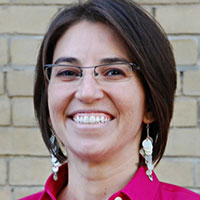
Dionne Aleman
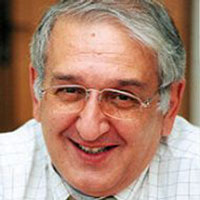
Fuad Aleskerov
Professor, Member of Academia Europaea
Head, Department of Mathematics for Economics, National Research University Higher School of Economics;
Head, International Centre of Decision Analysis and Choice, National Research University Higher School of Economics
Head, Laboratory of Choice Theory and Decision Analysis, Russian Academy of Sciences
Institute of Control Sciences
Publications: 11 books, more than 200 articles in 30 different fields of science, more than 100 in peer-reviewed journals and volumes
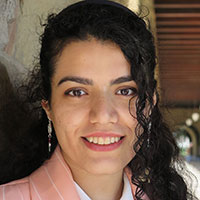
Yeganeh Alimohammadi
I have been organizing Stanford women in math mentoring for two years. As part of the program, I had to hold panel discussions where the panelists were minority graduate students in STEM and most of the attendees were undergrads, especially minorities.
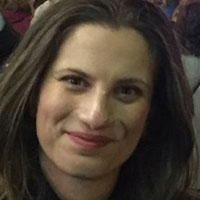
Ayca Altay
Ayca Altay is a final-year Ph.D. student at Rutgers University. Her dissertation focuses on suspicious behavior extraction and bounded rationality. She started an internship at American Express on natural language processing. She also advocates for mental health discussions in academia.
Last year, Altay led a “mental health in graduate students” themed discussion for INFORMS. She finds the virtual networking environment very useful.
Narges Aminimoghaddam
Aminimoghaddam is currently doing a Data Science Internship in CSUN, working with CSUN’s (GIS- Remote Sensing Applications) professor to perform data-aggregation, data visualizations, and trends-exploratory analysis on real-time unstructured data from different weather sensor devices. She is working to define the category of data, familiarization, and combination of all datasets fixing date, time format, and matching them (standard), graphing data. She is analyzing data, clustering, time series analyst (Naïve, Moving Average, Exponential Smoothing, and Seasonality) for forecast, probability, finding regression models, the validity of models, cross-validation for variables, Z-value, trend, the relation between dependent and independent variables, ANOVA test, and interpret outputs.

Harsh Anand
Harsh Anand is a Ph.D. student in the School of Engineering and Applied Science at the University of Virginia. His research interests broadly lie in machine learning, deep learning, data-driven decision making, and simulation-optimization. Specifically, he would like to apply these in adversarial settings, interdependent infrastructure system networks, computational sustainability problems like energy and urban mobility, and social issues such as security and planning. Previously, he has worked as a senior data scientist in the Advanced Analytics team of A.T. Kearney and in the AI Research Lab of Tata Consultancy Services.
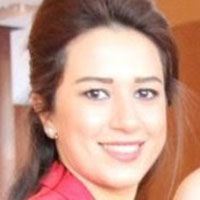
Banafsheh Behzad
Dr. Banafsheh Behzad is an associate professor of information systems at the College of Business, California State University, Long Beach. She received her Ph.D. in industrial engineering from University of Illinois Urbana-Champaign in 2014. She holds a B.Sc. degree in industrial engineering from Sharif University of Technology. Her research interests include game theory and its application in public health and social networks. Her current research focuses on pricing strategies in the vaccine markets and propagation and prevalence of fake news in social media. She is the current president-elect of WORMS and the chair of the INFORMS Membership Committee. She has experience moderating several panel discussions for WORMS.
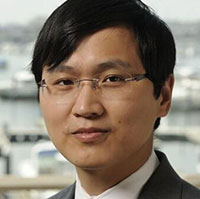
Tinglong Dai
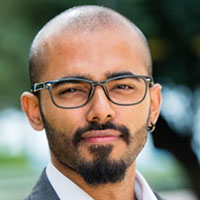
Abhishek Deshmane
Abhishek Deshmane is a fourth-year Ph.D. student in operations management at IESE Business School. Having always been fascinated by the relationship between the cultural industries and the society, his research interests naturally gravitated toward this niche area. Specifically, his research agenda is to employ principles from operations management toward building robust strategies for effective and sustainable management of cultural industries. So far, he has worked on improving the innovation strategies and service design in the music, art/museum, and tourism industries.

Franklin Dexter
Franklin Dexter is a professor with more than 25 years of experience applying analytical methods to anesthesiology and operating room management. FranklinDexter.net details his research, teaching, and skills in analysis of observational data, managerial epidemiology, education, and consulting. He has published more than 400 math/analysis papers for perioperative applications and more than 150 reviews, editorials, etc.; performed more than 700 consultations for over 200 hospitals and companies; and reviewed more than 7,000 papers and grants to help advance the field.
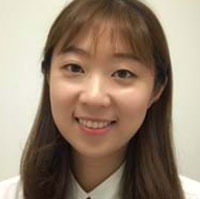
Yifu Ding
Yifi Ding has presented at The Alan Turing Institute, UK’s national institute for data science and artificial intelligence. She was a mediator in a session titled ’Smart energy systems’ at IEEE International Smart Cities Conference 2021.

Robert N. Eberhart
Robert N. Eberhart (Ph.D. Stanford 2014) directs research at Stanford University’s Graduate School of Business where he studies entrepreneurship and how it shapes society. He earned his Ph.D. in Management Science from Stanford University and his academic publications span topics such as new theoretical constructs on how institutional change has complex effects on new firms and how entrepreneurship is changing society. His publications have appeared in Organization Science (2107 and 2021), the Strategic Management Journal (2018), Strategy Science (2019), and others. He won awards for the Responsible Research in Business and Management (2020), Organizations and Management Division Best Theory Paper (2017), Outstanding Scholar Award at SCU (2017), Best Paper Award at the Western Academy of Management (2016), Best Paper Proceeding of the 2012 Academy of Management, among others. He served as the Vice Chairperson of the U.S. Dept. of State and METI’s Japan-US Innovation and Entrepreneurship Council. He has been quoted in the New York Times, NPR’ Marketplace, USA Today, San Jose Mercury News, ABC News, Forbes magazine, the Nikkei Weekly, and the Nihon Keizai Shimbun.
Before his academic career, Dr. Eberhart was a partner at Pacific Rim Partners, a San Francisco based venture capital firm and he was the Founder and CEO of WineInStyle KK in Tokyo, Japan. WineInStyle, along with its wholly owned subsidiary in the USA, distributed California wines to the Japanese and other Asian markets. Prior to founding WineInStyle, Dr. Eberhart was an executive with semiconductor and electronics hardware companies. He is an avid builder, pilot, and amateur astronomer. He has three grown children and is married to a Palo Alto dentist.
Haokun Du
Haokun Du is a third-year Ph.D. candidate at UTD, and a Eugene McDermott Graduate Fellow. In undergrad, he was the leader of a student club specializing in arts (politics, philosophy, history, and sociology, etc.), and has held various events including forums and seminars. He has led panel discussions, as well as facilitating discussion processes as a mediator in a session titled ’Smart energy systems’ at IEEE International Smart Cities Conference 2021.
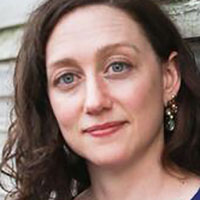
Sommer Gentry
Sommer Gentry is a professor of mathematics at the United States Naval Academy, and is also on the faculty of the Johns Hopkins University School of Medicine. She is a senior investigator with the Scientific Registry for Transplant Recipients. She has a B.S. in mathematical and computational science and M.S. in operations research, both from Stanford University, and a Ph.D. in electrical engineering and computer science from MIT. She designed matching optimization methods used for nationwide kidney paired donation registries in both the United States and Canada, and is now redistricting liver sharing boundaries to help the Organ Procurement and Transplantation Network reduce geographic disparities in transplantation. Her work has attracted the attention of major media outlets including Time magazine, Reader’s Digest, Science, the Discovery Channel, and National Public Radio. Gentry has received the MAA’s Henry L. Alder Award for Distinguished Teaching by a beginning mathematics faculty member.

Hongyi (Bridget) Huang
Huang is a machine learning tech lead at Capital One for its Card Technology Business. Prior to joining Capital One, she gained research and work experience in France, U.S., and China. She has published multiple papers on the statistical modeling implementation in engineering projects.
Since 2019, she has served as a session chair at the INFORMS Annual Meeting. She also teaches machine learning and cloud computing at The University of Texas at Austin.
She holds a master’s in civil engineering from the University of Maryland and a bachelor’s in aeronautical engineering from Beihang University, Beijing, China.

Weihan Jia
Weihan Jia is a third-year Ph.D. student within Trinity Business School, Trinity College Dublin. Over the last two years, she worked as class representative for doctoral students at Trinity Business School and organized activities there. She delivered one lecture in an undergraduate module in the first year of her Ph.D. She served as session chair at POMS 31st Annual Conference in May 2021. She independently prepared for and acted as an instructor of a series of R workshops that is part of a postgraduate course.
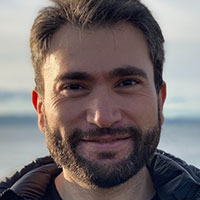
Gokhan Kirlik
Gokhan Kirlik is an applied scientist at Amazon, building ML and optimization models for business problems and creating end-to-end automation with ML orchestration.

Michael Martinez
Michael Martinez is a retired U.S. military officer and professional operations research analyst. He has facilitated and led discussions in various formats and contexts throughout his career.
Nima Molavi
Nima Molavi is an assistant professor of management in the School of Business and Education at Elizabeth City State University.
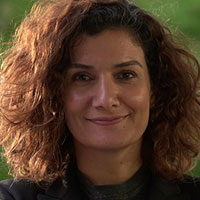
Lama Moussawi
Lama Moussawi, Ph.D., is a tenured associate professor of management science in the Suliman Olayan School of Business at the American University of Beirut (AUB), where she is currently serving as the associate dean for research and faculty development. She is also the director of the Center for Inclusive Business and Leadership for Women, an interdisciplinary regional-driven force committed to advancing inclusive workplaces and dignified work opportunities for women in the Middle East and funded through large grants from the Middle East Partnership Initiative at the U.S. Department of State. Dr. Moussawi earned a bachelor’s degree in computer science from AUB, and an MBA, M.S. in supply chain management, and Ph.D. in management science from the University of Texas at Dallas.
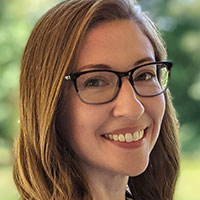
Stacey Mumbower
Stacey Mumbower is an assistant professor in the College of Business at Embry-Riddle Aeronautical University (Worldwide Campus). She served as a FacilitatOR during the Virtual 2020 INFORMS Annual Meeting.

Apoorva Nisal
Apoorva Nisal a final-year Ph.D. student in industrial engineering at the University of Illinois Chicago. Her research lies broadly in the areas of optimization, optimal control, and network theory with applications in the area of sustainability and personalized medicine.
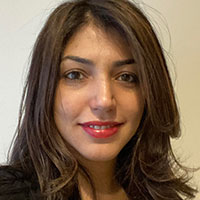
Mina Ostovari
Mina Ostovari is a lead research investigator at ChristianaCare Health Services Inc. She received her Ph.D. in industrial engineering from Purdue University with an emphasis on health data analytics. Before joining ChristianaCare, Ostovari worked as a research assistant at the Regenstrief Center for Healthcare Engineering (RCHE) at Purdue. Her research focuses on improving care delivery for patients with chronic conditions, specifically diabetes. She has published her research in journals such as JAMIA and PLOS One. Ostovari is an active member of professional organizations, such as INFORMS and AMIA. She continues her academic services, such as serving as a session chair at INFORMS meetings and serving in the early career editorial board of the Applied Clinical Informatics Journal.
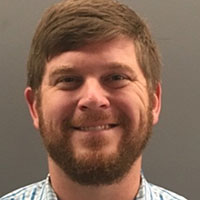
James Paine
James Paine is a fourth-year doctoral candidate at the Sloan School of Management at MIT, studying system dynamics and its applications to product and service delivery systems. Prior to coming to the system dynamics group, James gained experience in the nuclear, reverse logistics, and consumer apparel industries, as both an engineer and product lifecycle-focused marketer. Currently, James focuses on behavioral operations management questions, including human-algorithm interactions, supply chain research and analytics, and dynamic modeling of product and service delivery systems. In addition to leading discussions in the classroom as a teaching assistant and IAP course designer at Sloan, James has led introductory Lean Six Sigma instruction and many product ideation discussions in his prior work in industry.
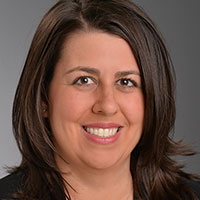
Natalie M. Scala
Dr. Natalie M. Scala, Ph.D., is an associate professor and director of the graduate programs in supply chain management in the College of Business and Economics at Towson University. She earned Ph.D. and M.S. degrees in industrial engineering from the University of Pittsburgh. Her primary research is in decision analysis, with specialization in military and security issues, including risk in voting systems, attack trees and strength of threat in mail voting, integrity of votes throughout the supply chain, poll worker education, and cybersecurity metrics and best practices. Her research team defines threats to voting as systemic and an interplay between cyber, physical, and insider sources. Her work in elections security earned a University System of Maryland Board of Regents Award for Excellence in Public Service, the system’s highest faculty honor. In conjunction with Anne Arundel County, Maryland, her work in cybersecurity and threat training for poll workers received a U.S. Elections Assistance Commission Clearinghouse Award for Outstanding Innovation in Election Cybersecurity and Technology. Dr. Scala frequently consults to government clients and has extensive professional experience, to include positions with Innovative Decisions, Inc., the United States Department of Defense, and the RAND Corporation.
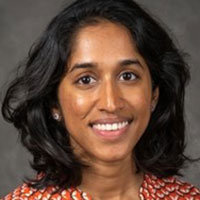
Elizabeth Scaria
Elizabeth Scaria is a fifth-year Ph.D. student at the University of Wisconsin-Madison and preparing to graduate in Spring/Summer 2022. She served as president for the UW-Madison student chapter of INFORMS and in various leadership roles on campus: in these roles she facilitated interactions among students by asking questions and providing examples if the group was having trouble getting conversations started.
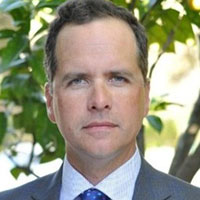
Harrison Schramm, CAP
Harrison Schramm, CAP, has been an INFORMS member for 15 years. He has served as chair of the Security Conference, member of the Edelman Committee, and incoming president of the Analytics Society.
He has worked in academia, government, and industry, and has worked in O.R. from both the hard, technical side and applied, policy side.
Thiago Serra

Harprinderjot Singh
Harprinderjot Singh is a Ph.D. candidate at Michigan State University. His field of interest includes transportation and infrastructure planning of autonomous vehicles and electric vehicles, operations research and decision making, and travel demand modeling. His research focuses on interdisciplinary research including policies for optimal adoption of autonomous vehicles in transportation systems, electric vehicle charging infrastructure, energy demand and effect on electric grid network, and distributed energy resources.
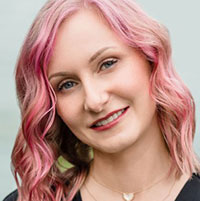
Natalia Summerville
Natalia Summerville leads a team at SAS Institute, Advanced Analytics R&D, that designs, develops, and implements machine learning and optimization applications for a variety of industries including retail, healthcare, transportation, manufacturing, and media advertising. Natalia has been teaching undergrad and master’s-level classes in industrial engineering, O.R., and data analytics since 2005 and is currently a lecturer at MIT, Duke University, and NCSU. She is deeply passionate about Data4Good movement and has been collaborating with many nonprofit and mission-driven organizations to implement data analytics for social good. Natalia is currently a board member within Pro-Bono Analytics and Doing Good with Good OR committees at INFORMS.
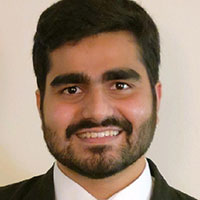
Vyom Thakker
Vyom Thakker held the position of Graduate council chair in the Department of Chemical Engineering at The Ohio State University, organizing and managing various events and seminars. He organized the College of Engineering graduate research symposium in 2020, and hosted the poster presentation session.
He is a fourth-year doctoral candidate and has attended several conferences (virtual and in person).

Tong Wu
Tong Wu is a Ph.D. candidate from Hankamer School of Business at Baylor University. She is studying information systems and business analytics and focusing her research on user engagement and blockchain applications.
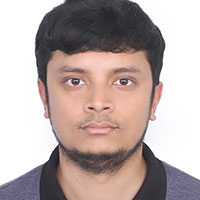
Adib Zaman
Muhammad Adib Uz Zaman is a postdoctoral research associate of Pharmacotherapy and Translational Research (PTR) department at University of Florida. The PTR department is highly ranked in the U.S. for innovative and impactful research. Zaman received his B.S., M.S., and Ph.D. degrees, all in industrial engineering, from Bangladesh University of Engineering and Technology, Northern Illinois University, and Texas Tech University, respectively, in 2015, 2018, and 2021. His research interests are in predictive modeling, data science, and operations research.
Zishuo Zhao
I am a first-year Ph.D. student at UIUC ISE. I have a background in Theoretical Computer Science in undergrad, and am interested in utilizing theoretical methods to solve a wide range of inspiring problems in OR.

Zijie (Jerry) Zhou
Zhou is a Ph.D. student in the Operations Research Center (ORC) and Laboratory for Information & Decision Systems (LIDS) at MIT. He is working on revenue management with sampling and online bipartite matching with sampling. Previously, he conducted research by using an LP-free algorithm to solve network revenue management problems. He has also conducted research combining online resource allocation and multi-bandit arms problems. He worked on a creative online matching project with Professor Jinglong Zhao.
